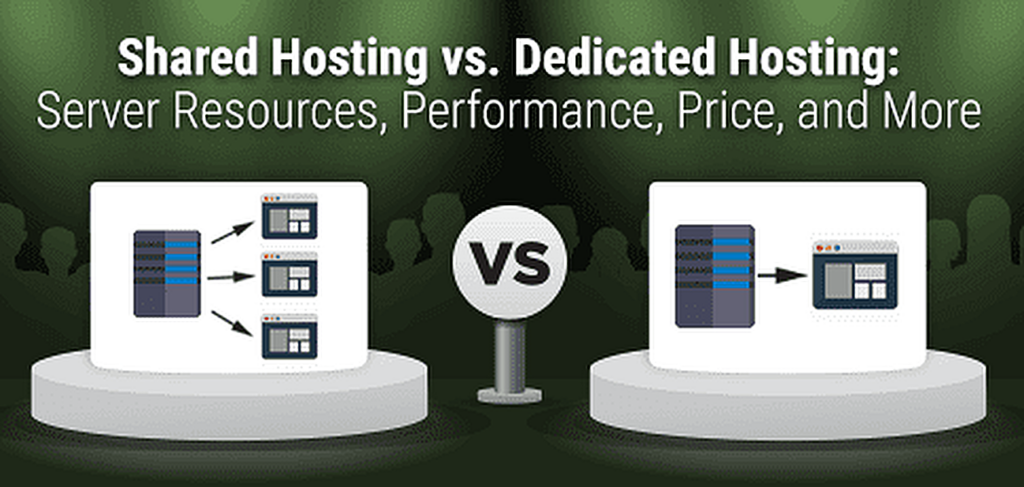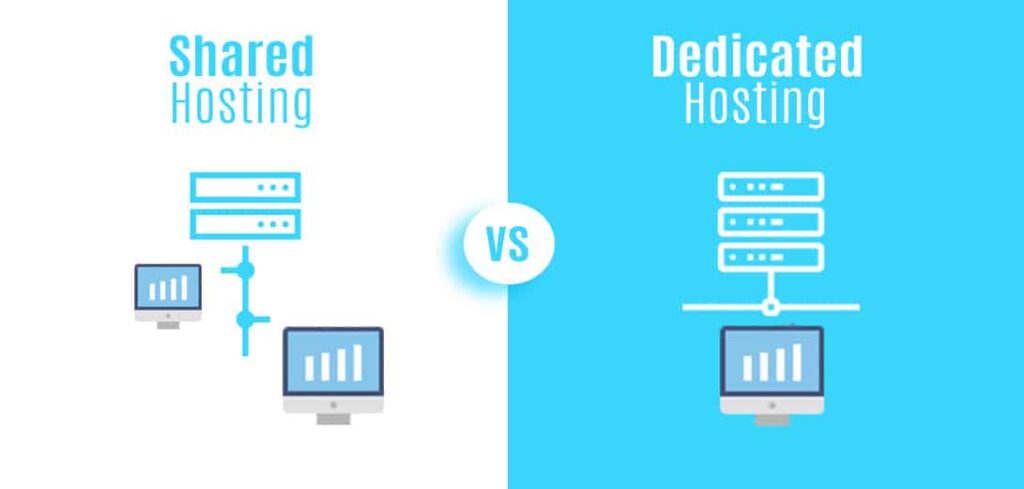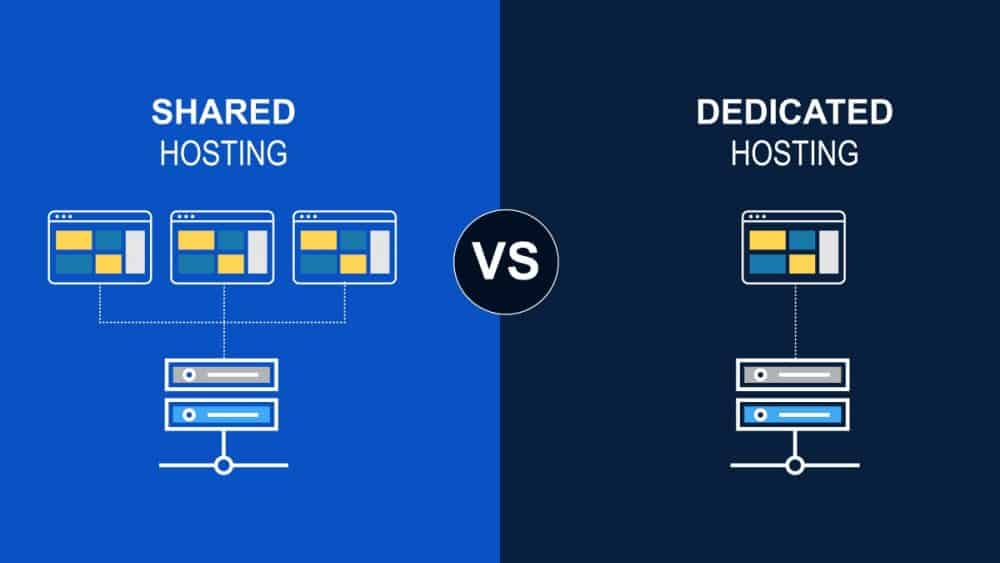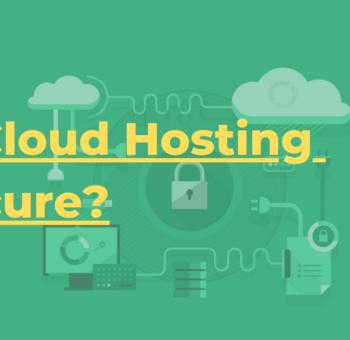
In technology, savvy accounting firms, and companies cloud hosting is extremely popular. If you are planning to host an application, accounting software, or website then both shared as well as dedicated hostings are supremely effective in handling your businesses. Both plans assure you the best services such as security, plans, features, 24*7 access, and many more. But all users have different needs and requirements, so making the right choice from Shared hosting vs Dedicated hosting is supremely important.
In brief, shared hosting can be utilized by multiple clients, however, dedicated hosting is devoted to a single client only. It means only one user can access the complete cloud setup. Both have different features, prices, and tools for your software, apps, and website. The question is how to pick from shared and dedicated hosting.
Before making a confirmed choice between Shared hosting vs Dedicated hosting, let’s analyze both shared hosting servers vs dedicated hosting.
Shared Hosting vs Dedicated Hosting: An Outline

Before making a comparison and difference between server and host. Let’s first understand the outline of “Shared Hosting vs Dedicated Hosting”
What is Shared Hosting?
On a shared hosting server, the web apps get mixed with other users. Here, you can’t control server operations entirely. There has to be a provider who can offer you tweaking abilities. So, here shared server has some restrictions however, they can be more cost-effective.
In short, shared hosting simply implies that there are multiple users from numerous companies on the same server. Also, shared hosting functions via a third party. They usually have a huge server to accommodate multiple companies within the server.
But here you save money as you get to pay less cost per user because other users are also paying for the server splitting the costs. A drawback is, that there are limited resources and action from other companies can affect you also. For example: If some user gets a virus on the server, it will put other users at risk.
Pros
- Low cost to pocket.
- Serves as better advertisement alternatives.
- Suitable for small businesses.
Cons
- Allocates low bandwidth.
- Resources are shared.
- Restricted Configurability
- Performance is less.
What are Dedicated Servers?

On an exclusive or dedicated server, you can control the entire machine under your command. You will find no software competing because your applications are running on the machine. It is different from shared hosting.
On a dedicated server, you can always decide to split the server into various segments. You also get the option to share it with other accounts or your own ones to make it affordable. Dedicated servers are costlier than shared hosting. Additionally, if you are new to the working of servers, then it could complicate your tasks.
Pros
- Offers the best performance and fast response time.
- Provides many business-related services.
- Additional security.
Cons
- It requires more cost to set up.
- Requires knowledge for perform operations.
- Not ideal for first-time users.
Difference Between Shared Hosting vs Dedicated Hosting
| Sr. No. | Shared Hosting | Dedicated Hosting |
| 1 | Server, as well as resources, are shared with multiple clients. | Server, as well as resources, are exclusive. |
| 2 | Multiple accounts are hosted on one server. | One individual controls one server. |
| 3 | Limited bandwidth per user. | Unlimited bandwidth to use. |
| 4 | Limited storage option to give equal shares. | You have entire control over the server. |
| 5 | Performance is quite low because it handles multiple websites. | High performance as the complete server is handling a single website. |
| 6 | The cost of maintenance costs is divided between the multiple users. | The cost of maintenance is the user’s responsibility which costs more. |
| 7 | High blacklisting chance because multiple websites are functioning inside a single server. | Blacklisting chance is minimal as one server is running the account. |
| 8 | Less response time due to many websites. | High response time due to a single account. |
| 9 | Minimal security because resources are shared. | Best security as a single individual controls the server. |
| 10 | For Example – Domain.com, Hostinger shared, iPage, etc. | For Example – Hostwinds, Inmotion Hosting, IONOS hosting, etc. |
 What To Consider Before Choosing Shared Hosting vs Dedicated Hosting
What To Consider Before Choosing Shared Hosting vs Dedicated Hosting
There are some points you need to consider while deciding between these two hostings namely- Shared hosting vs Dedicated hosting. Let’s explore all points carefully.
Choose shared hosting if:
- When fast and Quick setup is crucial.
- You want affordable, user-friendly hosting.
- Need easy site-building tools.
- You don’t want hardware maintenance.
- Need some less costly hosting service.
Skip shared hosting if:
- Software uptime is really crucial
- Your application uses unlimited bandwidth.
- You want complete server-level control.
Go for dedicated hosting if:
- You want all server access.
- Need complete control over server resources.
- Setup is important.
- Security is crucial.
- When a user is hosting a growing app.
- It is important for you to manage host support.
Don’t go for dedicated hosting if:
- Cost is a crucial factor.
- You can’t handle a machine or are unable to afford managed services.
- You don’t have an in-house IT staff.
Shared Hosting vs Dedicated Hosting: Pricing

Every user wants the most secure and fastest server with tons of features at an affordable price. But each service has to have a decent price.
Cost is the major deciding factor that helps users to choose from Shared hosting vs Dedicated hosting. Talking about the prices of shared hosting vs dedicated hosting, the first one is quite affordable than the latter one. Since multiple users work on the same server, the prices of shared hosting are less. It is suitable for small accounting firms and startups. With its economically viable pricing, most businesses that have a small budget go for it.
On the other hand, a Dedicated server is exclusive for one user only. This is why it costs more. On average, a shared hosting account will cost you around $30.88 annually. A basic dedicated server will cost you around $82.88 monthly. This is why, before you make any decision about Shared hosting vs Dedicated hosting, ask the following questions to yourself.
- Do you want complete control over the hosting?
- What’s your monthly traffic or expense?
- What type of security requirements do you need?
- What’s your monthly or annual budget?
- Can you prefer Quickbooks Remote Hosting?
After analyzing these questions only, you can pick an appropriate hosting server.
The Bottom Line: Shared Hosting vs Dedicated Hosting
| Shared Hosting | Dedicated Hosting | |
| Suitable for | Websites | SaaS or large scale apps |
| Costs | Low | Very high |
| Managed by | Hosting provider | By end-user staff in most cases |
| Security | Low to medium | Very high |
| Performance | Low | Very high |
| Bandwidth | Low | Very high |
| Scalability | Limited | Very high |
| Note | Good choice if you deal with a limited budget or for rapid deployments | Full control and enhanced performance for a high price. Good for users who need high performance and security. |
Also Read: 5 Best Cloud Hosting
Conclusion
Well, we understand that choosing a hosting package from Shared hosting vs Dedicated hosting is extremely crucial. The correct server will allow your app/software to perform with the best speed and performance.
On one hand, shared hosting is less expansion and is an easy step to begin with. For smaller businesses, it is an ideal pick. On the other hand, dedicated hosting will give you more flexibility and power to the table. However, it comes with lots of responsibility as well, but it’s worth it as it gives you full control.
No matter which server you choose for your business, we want to inform you about both in the best way possible. We hope the post helped you understand the difference between host and server and other aspects. Good luck with exploring the options and see what is ideal for your organization.

